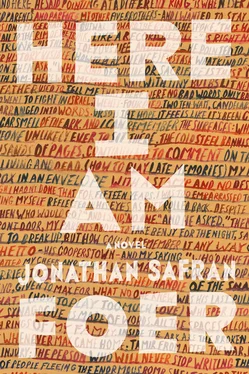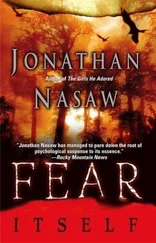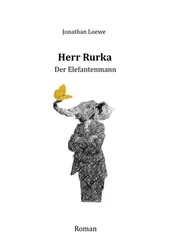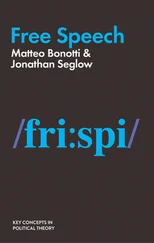“I often do,” she said. Her eyes raised, and scanned the room. “I don’t know if it’s annoying or helpful when I mention things—”
“Why so binary?”
“Right. Well. The walls are rather dark.”
“I know. They are, right?”
“Disconsolate.”
“I hired a colorist.”
“You’re kidding.”
“I used that paint you like. Farrow whatever.”
“Farrow and Ball.”
“And they offered a colorist’s services, I assumed as a courtesy because I was buying so much of their overpriced paint. And then I got a bill for twenty-five hundred dollars.”
“No.”
“Yes. Two thousand five hundred. And I feel like I’m living underneath a Union kepi.”
“Excuse me?”
“Those Civil War hats. I’ve been listening to this history of—”
“You should have asked me.”
“I can’t afford you.”
“Would have been pro bono.”
“Didn’t my father teach you there’s no such thing as a free colorist?”
“There’s paper everywhere,” Benjy said, coming down the stairs. He seemed buoyant, unfazed.
“It’s just protecting the floor while they finish the work,” Jacob said.
“I’m going to trip a lot.”
“It’ll be long gone by the time you live here. The paper on the floor, the ladders, the dust. All of it will be gone.”
Max and Sam came back down.
“Can I have a mini-fridge in my room?” Max asked.
“Definitely,” Jacob said.
“For what?” Julia asked.
“Don’t you think there’s too much paper on the floors?” Benjy asked his brothers.
“For all those Italian sodas.”
“I think Dad intended those as something special for your first time here.”
“Dad?”
“They would definitely not be an everyday beverage.”
“Sam, don’t you think the paper on the floor is bad?”
“Fine, so I could keep the dead rats.”
“Dead rats?”
“I gave the OK for a python,” Jacob said, “and that’s what they eat.”
“Actually, they’d probably have to be frozen,” Max said. “And I don’t think those mini-fridges have little freezer sections in them.”
“Why would you want a python?” Julia asked.
“Because I’ve wanted a python forever, because they’re amazing, and Dad said now that we had the new house we could finally get one.”
“Why doesn’t anybody care that I’m going to trip all the time?” Benjy asked.
And then Sam, who had been quiet for an uncharacteristically long time, said, “My room seems nice. Thanks, Dad.”
And that was the hardest thing for Jacob to hear. Julia saw that he needed help, and stepped in.
“So,” she said, clapping her hands once, inadvertently raising more dust, “Dad and I were thinking it would be nice to give this house a name.”
“Isn’t it just Dad’s House?”
“Right,” Jacob said, composing himself with an imitation of optimism. “But we all want to think of it as one of our family’s two houses.”
“Yeah, the one that you live in. As opposed to the one that Mom lives in.”
“I don’t like this house,” Benjy said, verbally cutting the lines of Jacob’s emotional brakes.
“You will,” Julia said.
“I don’t like this house.”
“I promise you will.”
Jacob felt himself skidding out. It was unfair that he had to move, unfair that he was perceived as the one who left; that all this dust was his was unfair. But he also felt his dependency on Julia’s efforts. He couldn’t do this without her. He couldn’t live without her without her.
“It’s going to be great,” she said, as if she could keep blowing her optimism into the punctured balloon of Benjy’s happiness and it would keep its shape. “Dad said there’s even room for a Ping-Pong table upstairs.”
“Totally,” Jacob said. “And I’ve been trolling eBay for an old Skee-Ball machine.”
“You don’t mean trolling ,” Max said. “You mean trawling .”
“Although,” Sam said, suddenly enlivened, “did you know that trolling actually comes from trawling . Not from, like, trolls?”
“I didn’t,” Max said, grateful for that little bit of knowledge. “I’d always assumed trolls.”
“Right?”
The moment of normality suggested a normal life.
“What’s Skee-Ball?” Benjy asked.
“It’s kind of a combination of bowling and darts,” Sam said.
“That’s hard for me to imagine.”
“Like at Chuck E. Cheese’s.”
“Ah, right.”
A normal life? Was all this upheaval justified by that ambition?
“How about Arcade House?” Max suggested.
“Too much like Arcade Fire,” Sam said.
“It’s very dusty,” Benjy said.
“The dust won’t be here.”
“How about Davenport House?”
“Why?”
“Because it’s on Davenport Street.”
“That sounds like an old-age home.”
“I don’t see what’s wrong about calling it Dad’s House,” Sam said. “We can pretend it’s something else, but that’s what it is.”
“Paper House,” Benjy said, a bit to himself, a bit to no one.
“What?”
“Because there’s so much paper everywhere.”
“But the paper will be gone by the time you move in,” Jacob said.
“And paper is what you write on, and you’re a writer.”
“He writes on a computer,” Sam said.
“And paper rips and burns easily.”
“Why would you want to name a house after something that rips and burns easily?”
“Give him a break, Max.”
“What did I say?”
“Forget it,” Jacob said. “We can just call it 2328, after the address.”
“No,” Julia said, “don’t forget it. It’s a nice idea, and we’re five intelligent people. We can do it.”
The five intelligent people thought. They applied their intelligence to what was ultimately not a question of intelligence, like applying a Phillips-head screwdriver to a crossword puzzle.
Some religions emphasize inner peace, some the avoidance of sin, some praise. Judaism emphasizes intelligence — textually, ritualistically, and culturally. Everything is learning, everything preparation, perpetually filling the mental toolbox until we are prepared for any situation (and it is too heavy to carry). Jews make up 0.2 percent of the world’s population, but have been awarded 22 percent of all Nobel Prizes—24 percent if you don’t include the Peace Prize. And with no Nobel for Being Exterminated, there was a decade when Jews wouldn’t have had much of a chance, so the practical percentage is yet higher. Why? It’s not because Jews are any smarter than anyone else; it’s because Jews put their emphasis on the kinds of things Stockholm rewards. Jews have been training for Nobel Prizes for thousands of years. But if there were Nobel Prizes for Contentment, for Feeling Safe, or for the Ability to Let Go, that 22 percent—24 percent without Peace — would need a parachute.
“I still think we should call it Dad’s House,” Sam said.
“But it’s not just my house. It’s our house.”
“We can’t call it Our House,” Sam said, “because the other house is our house, too.”
“Clock House?”
“Why?”
“I don’t know.”
“Pompelmo House?”
“Anonymous House?”
“Dusty House?”
“To be continued,” Julia said as she checked her phone for the time. “I’ve got to get these guys to haircuts.”
“Right,” Jacob said, knowing the inevitable, and wanting to defer it, if only for another few minutes. “Does anyone want a snack or drink first?”
“We’re going to be late,” Julia said. And then: “Everybody say ’bye to Argus.”
“Later, Argus.”
Читать дальше












